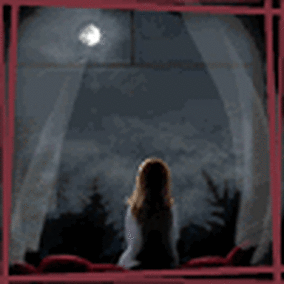Bad Kocka!
I know I always say I won't have cooking or crafting on my blog. This blog is about writing. But writing is story-telling. This is my story and I'm sticking to it.
With the probability of next year inaugurating reduced circumstances in our house, we decided to make Christmas gifts for the family. My husband has prepared various and sundry smoked and spiced pecans. Give that man a grill and he can do anything. (Including a beef loin roast that he's preparing for our close-family Christmas dinner.)
Because we're having our Christmas dinner Monday evening; my husband is leaving for Christmas in Oklahoma early Tuesday morning; and I'm a world-class procrastinator, I did the baking Sunday. He's had the pecans done for days.
First I put away all the items cluttering the kitchen counters. This goes down to the basement. That goes out into our so-called pantry in the garage. To the linen closet at the end of the hall. Into the office. And voila, I've got a place to work.
The butter and sugar are in the mixer, creaming nicely.
CRASH! Something bad in the entryway. KOCKA! Bad cat! He'd knocked a plant off its perch. There the cat-demon sat obviously amazed and pleased at the freshly watered soil spread across the floor.
I'm ranting and raving. My husband is ranting and raving. "That's why I don't want a cat," he says waving his arms at the cat trying to shoo him out of the dirt. "Cats belong in the barn." (We don't have a barn.)
I was planning to repot the plant anyway. Just not on baking day.
I brought the broom and dust pan in from the garage and went to get a proper pot from the back porch -- preferably one that wouldn't tip easily.
Kocka closely watched the whole plant-repotting and soil-sweeping process, staying just beyond my reach. When I finished, he fled down the hall and hid in the bathroom. Perhaps I look dangerous when I'm not actively cleaning up after him.
Back to baking. Add eggs and vanilla to the sugar and butter. I couldn't open the vanilla without using my handy-dandy bottle opener. I'd been fighting that bottle's lid for months and I was tired of it. I used to use the vanilla lid to measure out a teaspoonful. Approximately. And I knew the vanilla dried and effectively glued the lid in place so I'd started using a measuring spoon and wiping the mouth of the vanilla bottle. It still stuck.
So I decided to transfer the vanilla into a bottle with a lid I might more easily twist off. Found a bottle . . . a mead bottle. A not quite empty mead bottle. But it was after 8 in the morning here and 5 in the afternoon somewhere, so I poured it into a glass and drank it.
Perhaps, you noticed my fancy funnel. Couldn't find my regular one so my husband re-purposed a plastic wine glass by cutting off its stem. It worked very well, so it is freshly washed and living in the drawer where the AWOL funnel should be.
Four Cookies shy of a full sheet.
And where, you might ask are those four cookies? That was the second sheet of cookies to come out of the oven. I only recently learned the benefits of parchment paper when baking. From my beautiful daughter-in-law. (Who is also a good blogger. Click here.)
However, parchment paper has side effects. One of which is that it slides easily. And the cookies slide easily. Those four cookies slid off the cookie sheet. Onto the floor. Into the bottom of the oven. Through that crack at the bottom of the open oven door into the drawer at the bottom of the stove.
Kocka thought the cookie-mishap clean-up was pretty interesting, too. But he doesn't eat cookie crumbs. Where's a Dachshund when you need one?
By 10:30 a.m. I had achieved a repotted plant, a clean entryway floor, a clean kitchen floor, clean stove drawer, and some oatmeal cookies. Rice Krispie Treats, Spritz cookies, peppermint cookies, two apple pies, and some kolaches were yet to be baked. I know. You don't bake Rice Krispie Treats. Thank goodness for tiny mercies.
And I'd learned so much. Cats belong in barns and they don't eat cookie crumbs. Be extra careful with parchment paper. And as a baker, I'm a pretty good writer.




























